Whenever a new bike arrives at Sigma Sports, a ceremony-like ritual engulfs every employee, pulling them uncontrollably towards it. Excited cyclists gather like children around a campfire, and one by one, each person expels their right to firmly grasp the top tube and check its overall weight. “I thought it would be lighter” or “wow, that’s light” are usually the words uttered, but with the Scott Foil RC Road Bike, everyone was left perplexed.
Sitting a shade under 7 kilograms for a 52cm, the Scott Foil RC pips most other major brands’ top flight aero bikes when it comes to weight, with the Specialized S-Works Venge ViAS with SRAM Red eTap tipping the scales at 7.8 kilograms and the Trek Madone 9.5 at 7.05 kilograms. Admittedly, low weight isn’t a valid replacement for ride comfort and quality, so without further ado, here is our in-depth review of the Scott Foil RC Road Bike.
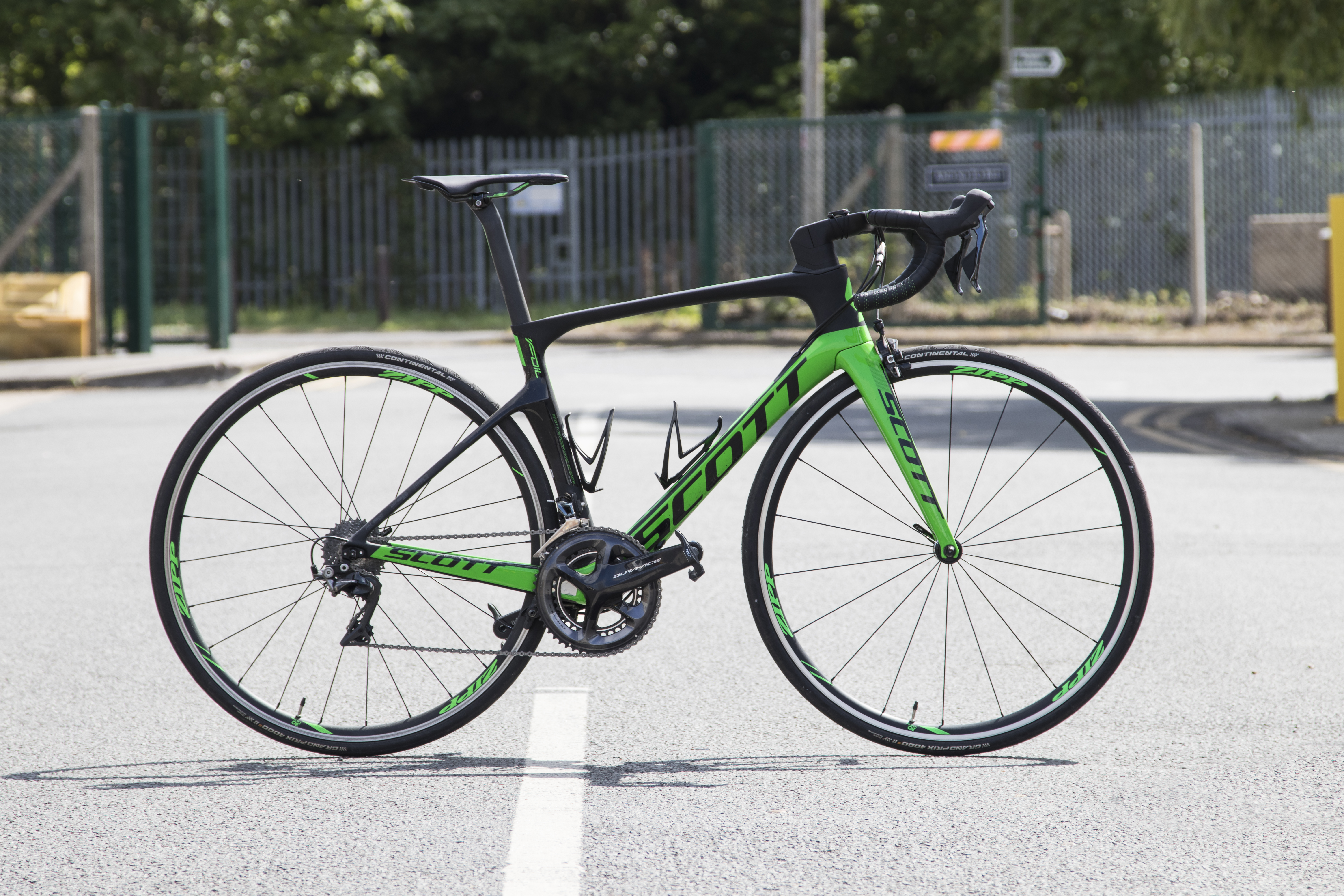
Construction and geometry:
With RC standing for Racing Concept, aimed at Scott’s elite level Orica-Scott Team riders such as Ewan, Hayman and Yates, you’d expect a more aggressive setup that really puts you in the optimum position for power transfer, and to some extent, this is true. When you choose an RC level bike, you get a stronger HMX carbon fibre construction which is, according to Scott, both 14% lighter and 20% stiffer than Scott’s HMF carbon.
However, like its HMF carbon little brother, the geometry of the RC remains the same with a 980mm wheelbase and 72° head tube angle. 980mm may seem like a long wheelbase for an aero bike, but thanks to this steeper head tube angle, Scott have been able to counteract the potentially sluggish ride, with more straight line focused handling.
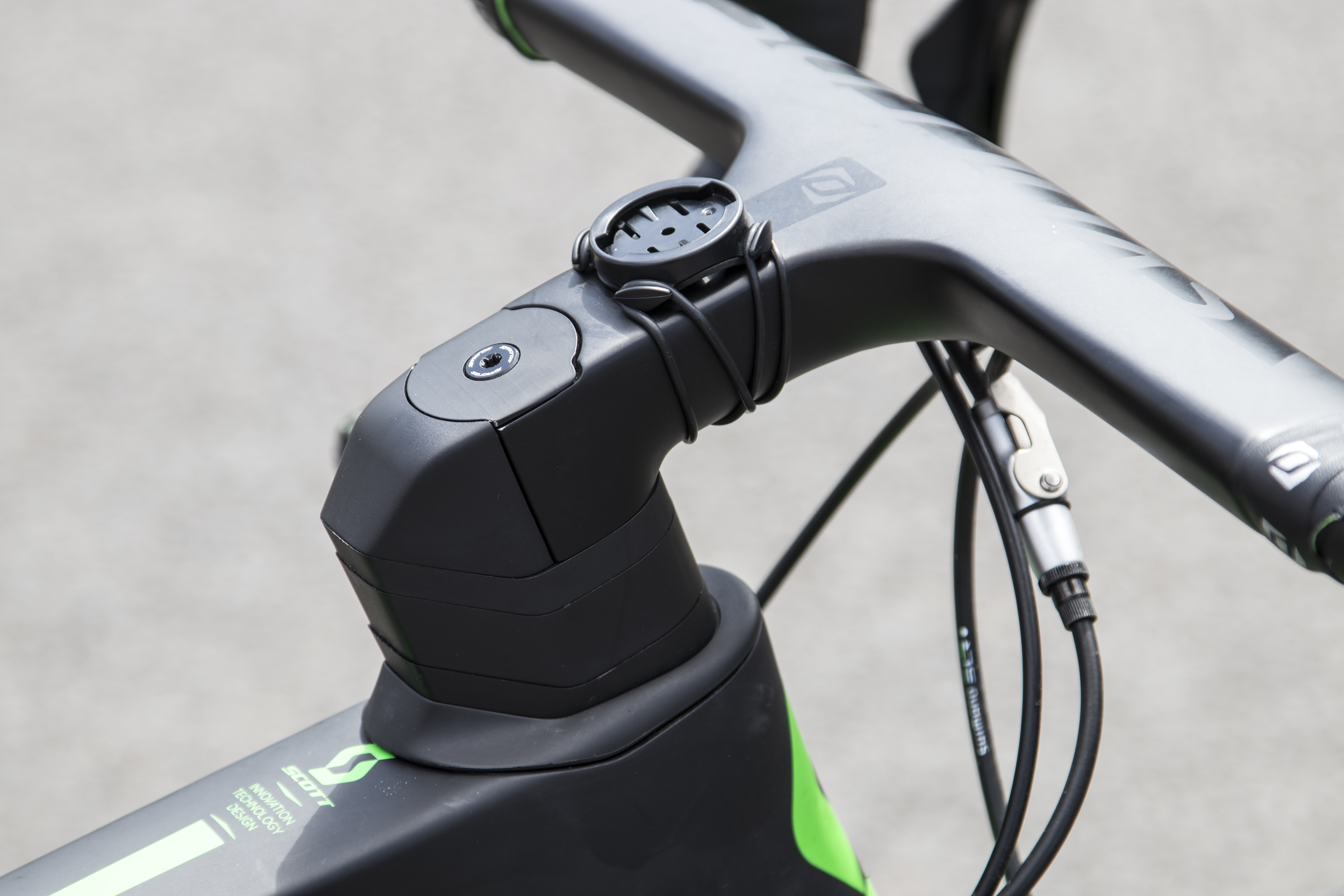
Notably, on longer rides with ample climbing, it performed exceptionally well. Inspiring confidence on the descents thanks to its 74.0° seat tube angle, which keeps you optimally positioned for tight hairpin bends, its sublime blend of stability and tracking prowess in the corners makes you feel like the next Nibali.
Tube shaping has also been altered, and Scott’s F01 Technology moves away from traditionally shaped tubing and towards pushing the boundaries of what’s capable in terms of aerodynamics on the bike. The trailing edge and transition radius of the tubing (the front) has been decreased, giving a more oval looking shape, whilst the leading edge (the rear) offers cleaner airflow and in tests. In real world terms, this results in a gain of 27 seconds over 40km.
The conclusion for this technology? You feel fast, and ride faster. My first outing saw me taking Strava PB’s with ease, and over longer distances, I felt fresher and ready to attack when on other bikes I’d already be willing to take the shortcut home.
So, it’s surprisingly lightweight, which is a huge advantage on longer, more testing climbs, and its position is both aerodynamic and incredibly responsive. What else could you want in a bike?
Ride quality and feel:
The first version of the Foil was renowned for compromising long-distance comfort for blistering speed and razor sharp handling. Yes, it was fast, and it would keep you on the front end of the pack, but the ride was harsh and only riders blessed with buns of steel could tame it.
Since then, Scott has dropped the seatstays and improved compliance in the seatpost by redesigning the shape, now coming with a square-back edge, allowing for vertical flex without any twisting. This makes the overall ride supremely comfortable, allowing the frame and seatpost to soak up the vibrations instead of your rear end.
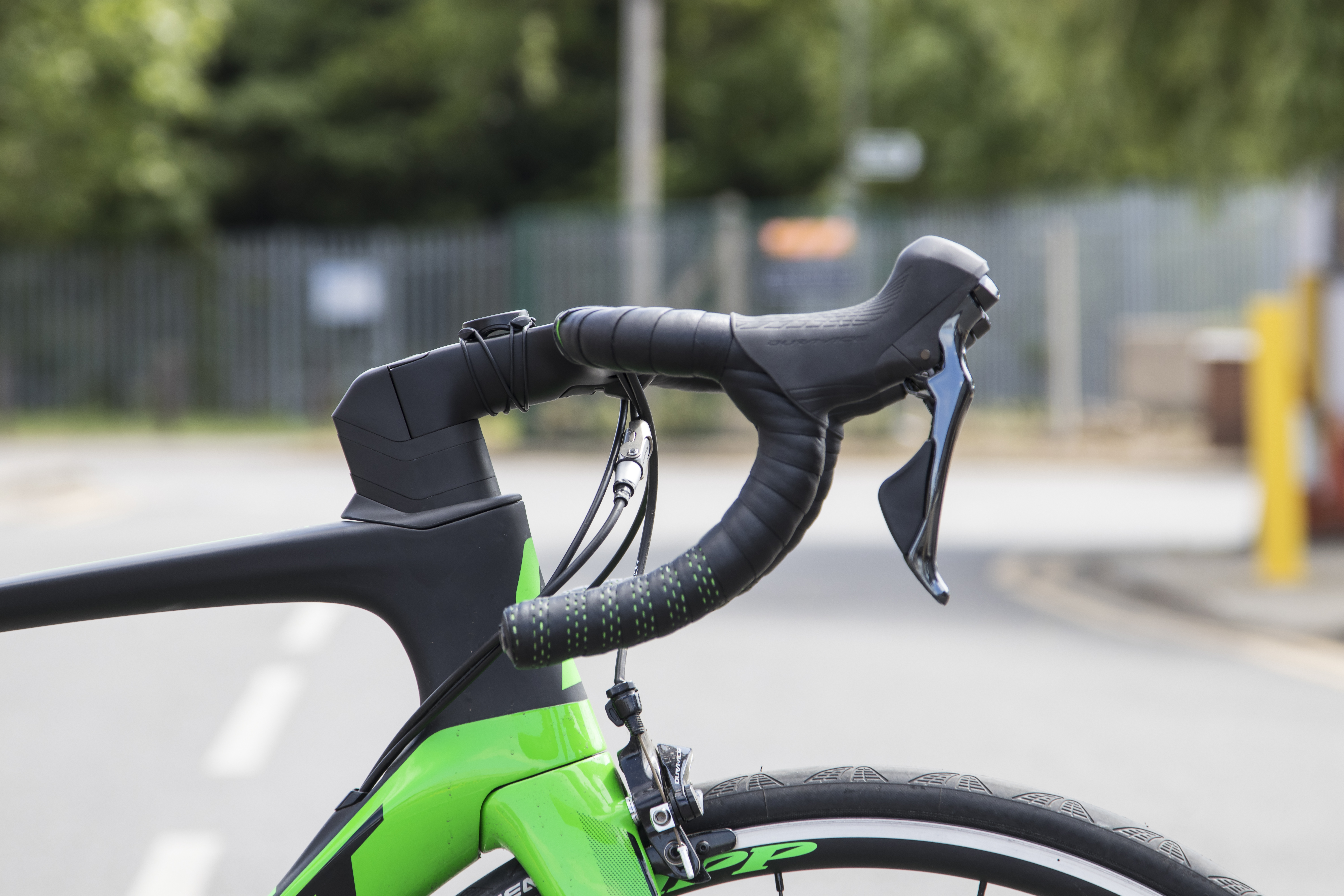
This isn’t to say the power transfer of the RC is replaced by aerodynamic efficiency, though. Whether it's the finish line of a grand tour stage or sprinting to the next town sign with your friends, it’s immediately evident just how stiff the bike is. There’s no flex in the bottom bracket, and the integrated Syncros Carbon Foil handlebar and headset stay completely rigid when you’re hammering it down in the drops.
Once again, proven over longer rides with plenty of climbing, these changes really made the difference to my ride. Whereas on my Cervelo I’d have to switch between standing out the saddle and spinning up climbs every few hundred metres, I could quite happily just sit back and let the bike do all the work on the RC.
Components:
Zipp’s 30 Course wheels are designed for every type of terrain a road bike can handle, and with their incorporation of Zipp’s renowned 202 Firecrest clincher profile which promotes greater stability and aerodynamics, with a 26mm deep rim, you get a surprisingly comfortable, yet responsive ride.
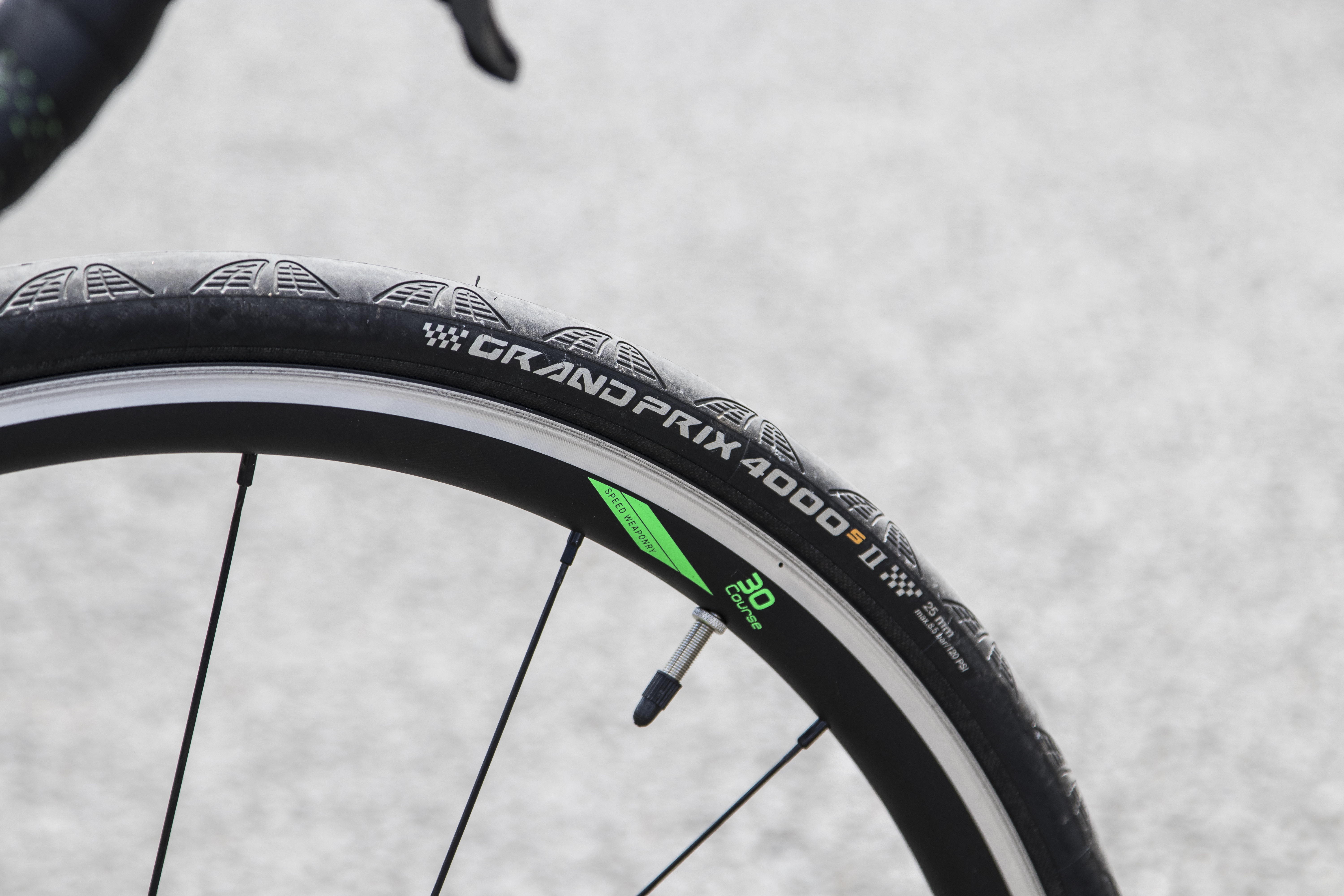
At first, I felt Scott had opted for tyres that weren’t up to compliment the sheer racing nature of the Foil RC, but once again, I was surprised at the Continental Grand Prix 4000s II’s. Fast rolling, durable and now that I’m not riding it anymore, I can finally say I didn’t puncture once over 800km. This wheel and tyre combination works beautifully in a wide range of conditions, and thanks to the wider 21mm internal width of the rim, the tyre casing is spread to increase the contact with the ground, offering impressive grip when both descending and cornering at high speeds.
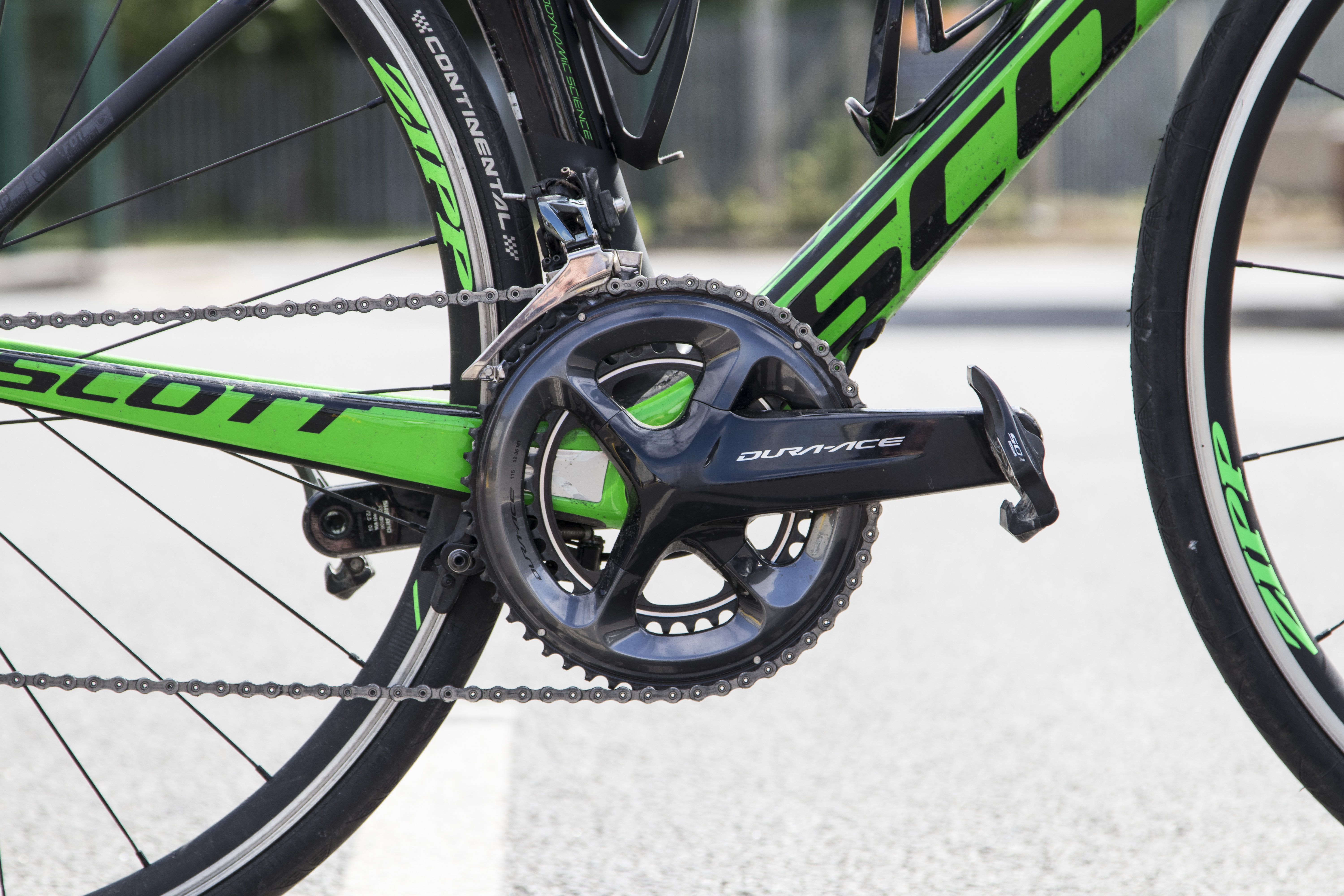
Everyone knows how reliable Shimano components are, and Shimano’s Dura-Ace 9100 groupset with an 11-28t cassette is no exception. Faultless when it comes to shifting and never missing a beat, there was no loss of power in the drivetrain, and the wide range of gearing gave enough options to get up the steepest of climbs.
Bolstering the Foil’s aerodynamic performance, Scott’s integrated aero rear brake system shields the brake caliper from the wind, yet still offers the same braking performance to any other pivot system I’ve used. Of course, because it’s hidden awkwardly underneath/behind the bottom bracket, it takes both patience and above average technical knowledge to adjust.
Conclusion:
After three weeks of riding the Scott Foil RC, I can safely say I’ve fallen in love with this bike. It’s fast, it’s efficient and it’s comfortable. A thoroughbred long distance racer that performs as well on the flat as it does when climbing, but isn’t scared to show its speed when you decide to up the ante, the Scott Foil RC Road Bike really is the complete aero machine.







